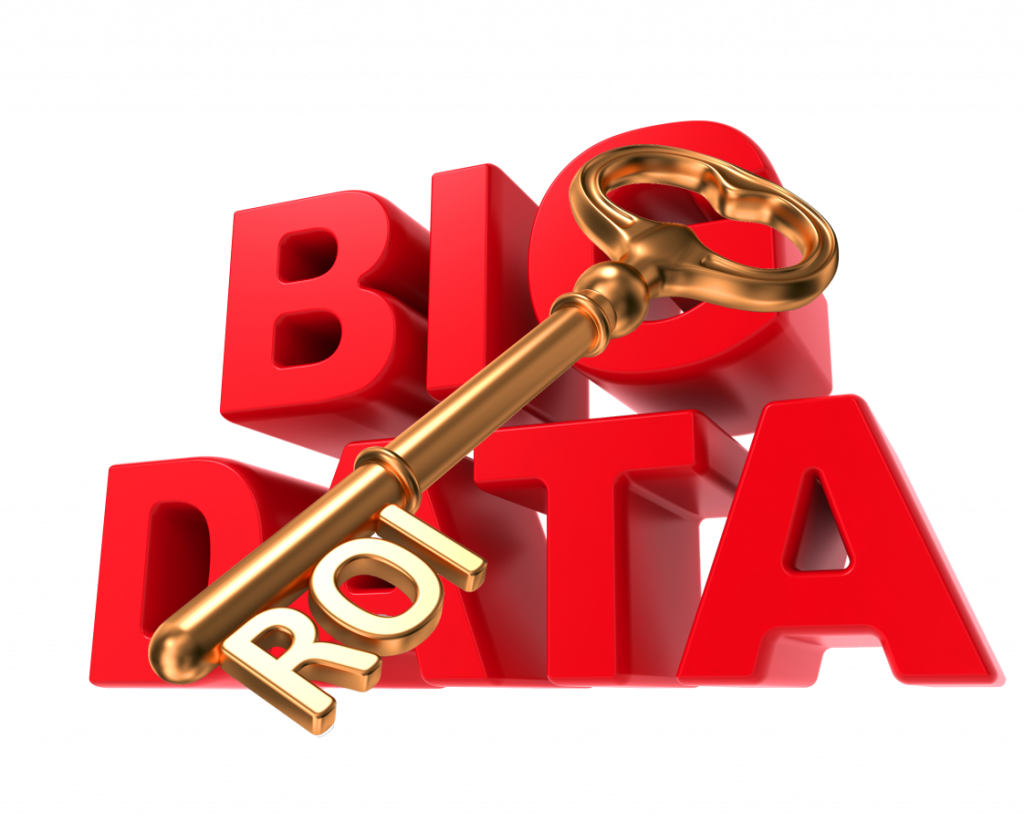“The digital era has most organizations pursuing the fruits of data-driven strategies,” writes freelancer Bob Violino (@BobViolino). “But ensuring payoff is more nuanced than most think.”[1] With most consultants urging businesses to transform into digital enterprises, understanding those nuances is important. Violino notes, “It’s one thing to gather large amounts of data and apply analytics to it; lots of organizations are doing that. It’s another thing entirely to gain optimum business value from that data and analysis.” Corporate leaders are always seeking the best return on investment (ROI) and, in the digital era, no investment return is more important than one obtained through advanced analytics. That means a strong business case must be made for analytics from the outset. Dan Simion, Vice President of artificial intelligence and analytics at Capgemini, told Violino, “Data analytics need to solve real business problems. Starting with use cases that are business-specific can be a great approach to earn buy-in from more stakeholders who may be outside of IT.”
What Do You Want Analytics to Achieve?
The CIO Review staff observes, “Intelligent, data-driven firms are increasingly leveraging new solutions to improve customer understanding, automate procedures, and streamline complex operations.”[2] In addition, they also mention improving decision-making. Daymon Thompson, Automation Product Manager for North America at Beckhoff Automation, notes, “Demands to reach the best decisions based on real-time data insights are greater than ever.”[3] Some of the business benefits of advanced analytics include:
• Forecasting. Carey Wodehouse, Senior Manager of Creative Content at Pure Storage asserts, “Through big data analytics, organizations can predict emerging trends and discover valuable insights that help them make strategic decisions.”[4] The CIO Review staff adds, “When paired with statistical algorithms and historical data, big data analytics enables marketers to forecast consumer actions and outcomes better.” In today’s volatile marketplace, historical data may not be a reliable gage of the future. Cognitive solutions, like the Enterra Shopper Marketing and Consumer Insights Intelligence System™, using near-real-time data can help companies understand changing consumer behavior.
• Data Democratization. A business whose data is locked in silos will never achieve optimum performance. A data-driven business makes data available to everyone who needs it. The CIO Review staff observes, “AI is increasingly assisting in democratizing data analytics by democratizing the process of generating reports and making sense of the findings. Organizations can obtain total visibility into their operations across all departments using self-service, intelligent solutions.”
• Supply Chain Processes. According to Wodehouse, “Supply chain digitization improves traditional supply chain management systems through the integration of new technology, combining real-time location and business data from across the entire supply chain into a single, central source of information that creates end-to-end visibility. As a result, organizations can improve efficiency, prevent disruptions, and remain competitive in their markets. Supply chains generate massive amounts of data, including internal historical sales data, supplier performance records, point of sale consumer data, and landed cost data. Through digitization, companies can gather and analyze this data to identify problem patterns, bottlenecks, and other opportunities to reduce costs.”
• Trade Promotion Optimization. We know from experience that cognitive solutions, like the Enterra Trade Promotion Optimization System™, can significantly increase the effectiveness of promotional campaigns. In addition, the CIO Review staff notes, “Advanced analytics solutions enable enterprises to track the effectiveness of all campaigns, communications, and techniques that contribute to a customer’s conversation. These findings provide a framework for firms’ future strategies.”
• Targeted Marketing. Getting the right message for the right product in front of the right customer at the right time increases conversion rates. The CIO Review staff notes, “Businesses can utilize data analytics to ascertain what customers want and how they respond to communications and then incorporate that knowledge into marketing, development, and sales plans.” Wodehouse adds, “Data has always been an invaluable component of effective marketing campaigns. Big data has helped businesses move away from mass-marketing campaigns to focus on more targeted and personalized strategies.”
• Cost Savings. Wodehouse notes, “One of the biggest benefits of the effective use of data for organizations is its ability to help reduce costs. From marketing strategies to customer service, properly leveraging analytics and swaths of data can help organizations glean better insights to cut down on operational costs and increase revenue.”
• Decision-making. Enterra Solutions® professionals spend a lot of time thinking about how corporate decision-making can be improved. One of our main focuses is on Autonomous Decision Science™ (ADS™). ADS plays the role of the data scientist or subject matter expert to help optimize business decisions and help enterprises run at the speed of the marketplace. The CIO Review staff adds, “One of the primary benefits of big data analytics is that it dramatically enhances decision-making. Rather than relying solely on intuition, businesses increasingly turn to data to inform their decisions. When big data is combined with AI, machine learning, and data mining, companies can generate more accurate predictions.”
Concluding Thoughts
The Analytics Insight staff insists, “The ability to scrutinize data faster can be beneficial to any business organization as it helps businesses to answer important questions quickly. Big data analytics is important as It allows organizations to use a huge amount of data from various sources to identify opportunities and risks, helping organizations to move quickly and efficiently.”[5] Like the experts cited above, they note that the benefits of advanced analytics include:
• Cost-efficiency. Helping organizations in identifying better and more efficient ways of conducting business.
• Product development. Developing a better understanding of customers’ needs and desires leads to the development of better products.
• Market insight. Keeping track of market trends and customers’ purchase behavior.
They conclude, “It is safe to say that big data analytics now runs the business markets because the information is power in the digital era. Big data analytics is helping businesses to uncover the hidden truths below those massive datasets which they collect from different sources. Thriving in competitive business markets is just a dream without big data analytics.”
Footnotes
[1] Bob Violino, “5 ways to maximize the value of data analytics,” CIO, 26 October 2021.
[2] Staff, “The Advantages of Data Analytics in Businesses,” CIO Review, 5 March 2022.
[3] Daymon Thompson, “How to Implement Analytics and Stay in Control of Your Big Data,” AutomationWorld, 21 March 2022.
[4] Carey Wodehouse, “6 Ways Big Data Analytics Can Drive Down Costs,” Business 2 Community, 28 January 2022.
[5] Staff, “Big Data Analytics: How It Works and Its Benefits,” Analytics Insight, 28 January 2022.





